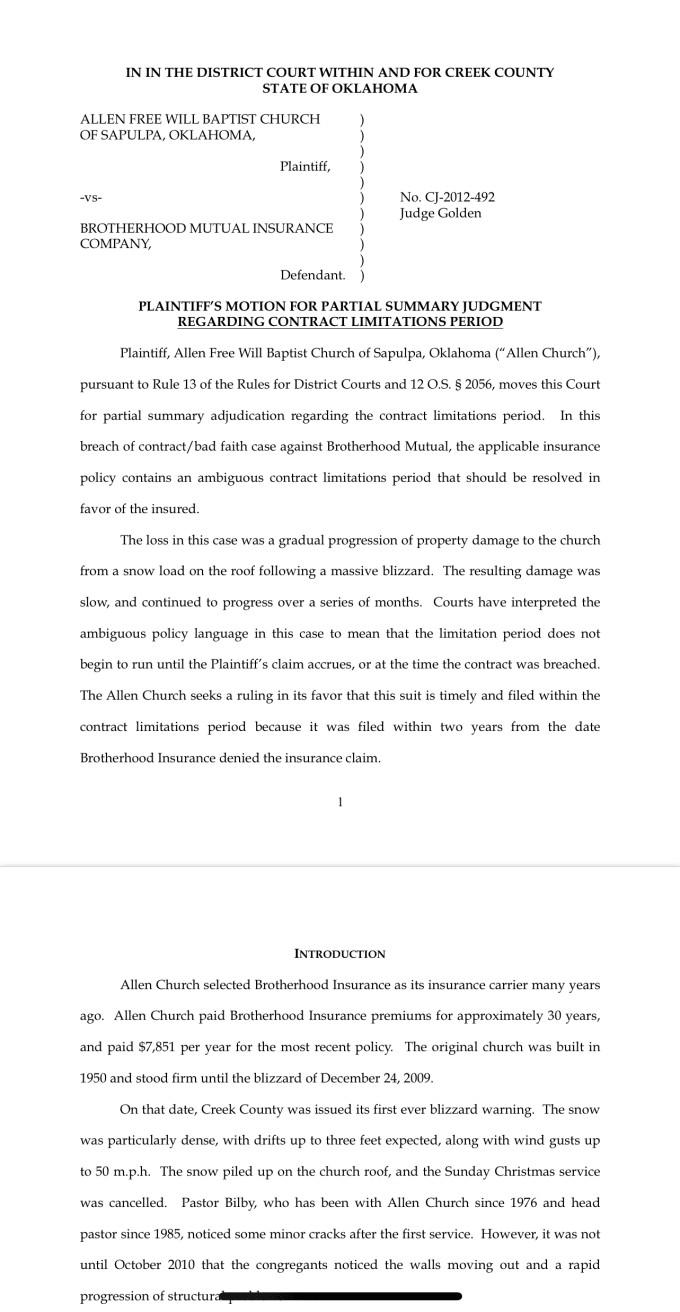Briefs That Convert: Proven Techniques For Persuasion

Table of Contents
Understanding Your Audience: The Foundation of Persuasive Briefs
Before writing a single word, you must deeply understand your target audience. A generic brief won't resonate; a tailored one will.
Defining Your Target Audience:
Going beyond basic demographics like age and location is critical. You need to understand their psychographics – their values, interests, lifestyle, and motivations. What are their pain points? What are their aspirations?
- Conduct thorough surveys: Use online platforms or in-person interviews to gather detailed information.
- Analyze existing customer data: Leverage your CRM and website analytics to identify patterns and insights.
- Perform competitive analysis: Understand how your competitors are targeting similar audiences.
For example, a brief targeting tech-savvy millennials will differ significantly from one aimed at older professionals. The language, tone, and visual style must reflect these differences.
Tailoring Your Message:
Once you understand your audience, tailor your message accordingly.
- Adapt your language: Use clear, concise language appropriate for your audience's level of understanding. Avoid jargon if you're targeting a non-technical audience.
- Adjust your tone: A formal tone might be suitable for a brief presented to executives, while a more informal tone might be appropriate for a creative team.
- Choose the right visuals: Visuals should resonate with the audience's preferences and cultural context.
Imagine crafting a brief for a luxury car brand versus a budget-friendly clothing line. The tone, imagery, and overall style will be vastly different to effectively communicate with their respective target audiences.
Crafting a Compelling Narrative: Storytelling in Your Brief
A persuasive brief isn't just a list of tasks; it's a story that captivates and convinces.
Problem-Agitation-Solution (PAS) Framework:
The PAS framework is a powerful tool for crafting a persuasive narrative.
- Problem: Clearly define the challenge or opportunity the campaign aims to address.
- Agitation: Amplify the problem, highlighting its negative consequences and the urgency for a solution.
- Solution: Present your proposed campaign as the solution, showcasing its benefits and how it addresses the problem effectively.
For instance, a brief might highlight the problem of low website conversions, agitate by showing the lost revenue, and then present a revamped website design and content strategy as the solution.
Using Data and Evidence:
Back up your claims with concrete data and research.
- Include market research: Demonstrate your understanding of the market landscape.
- Present competitor analysis: Show how your campaign differentiates itself from the competition.
- Share past campaign results: Demonstrate your track record and build credibility.
Using charts and graphs to visualize data significantly enhances a brief's persuasiveness and makes complex information easily digestible.
Clear Objectives and Measurable KPIs: Setting the Stage for Success
Vague objectives lead to vague results. Briefs that convert are built on clear goals and measurable metrics.
Defining SMART Goals:
Ensure your objectives are:
- Specific: Clearly defined and easily understood.
- Measurable: Quantifiable with specific metrics.
- Achievable: Realistic and attainable within the given timeframe.
- Relevant: Aligned with overall business goals.
- Time-bound: Assigned a clear deadline.
For example, instead of "increase brand awareness," a SMART goal might be "increase brand awareness by 20% within the next quarter, as measured by social media engagement and website traffic."
Choosing Relevant KPIs:
Identify KPIs that accurately measure success.
- Website traffic: Measure the number of visitors and their engagement.
- Conversion rates: Track the percentage of visitors who complete desired actions (e.g., purchases, sign-ups).
- Brand awareness: Monitor social media mentions, brand searches, and survey results.
Selecting the right KPIs ensures that you can accurately measure the effectiveness of your campaign and demonstrate a clear return on investment.
Visual Appeal and Readability: Making Your Brief Engaging
A visually appealing and easy-to-read brief is more likely to be understood and acted upon.
Effective Use of Visuals:
- Use high-quality images and graphics: Ensure visuals are relevant, clear, and professionally designed.
- Employ charts and graphs to present data effectively: Make complex information easily digestible.
- Maintain a consistent visual style: Use a consistent color palette, font, and style guide to create a professional and cohesive look.
Visuals should enhance the message, not distract from it.
Clear Structure and Formatting:
- Use headings and subheadings: Break down the text into logical sections.
- Employ bullet points and numbered lists: Make key information easily scannable.
- Leave ample white space: Avoid overcrowding the page; white space improves readability.
A well-structured brief allows for quick comprehension and facilitates efficient communication.
Conclusion
Crafting briefs that convert requires a multi-faceted approach. By understanding your audience, building a compelling narrative, setting clear objectives, and ensuring visual appeal, you can significantly improve the effectiveness of your marketing campaigns. Remember, a well-crafted brief isn't just a document; it's a roadmap to success. Start crafting briefs that convert today by implementing these strategies and watch your marketing campaigns soar!

Featured Posts
-
 Formula 1 Miami Grand Prix Oscar Piastri Secures Victory For Mc Laren
May 23, 2025
Formula 1 Miami Grand Prix Oscar Piastri Secures Victory For Mc Laren
May 23, 2025 -
 Heartbreaking Reason Cat Deeley Missed Mother In Laws Funeral This Morning Revelation
May 23, 2025
Heartbreaking Reason Cat Deeley Missed Mother In Laws Funeral This Morning Revelation
May 23, 2025 -
 Nicolas Tagliafico Man United Players Responsible For Ten Hags Difficulties
May 23, 2025
Nicolas Tagliafico Man United Players Responsible For Ten Hags Difficulties
May 23, 2025 -
 Understanding Different Types Of Briefs A Practical Guide
May 23, 2025
Understanding Different Types Of Briefs A Practical Guide
May 23, 2025 -
 James Wiltshires Career At The Border Mail A Ten Year Retrospective
May 23, 2025
James Wiltshires Career At The Border Mail A Ten Year Retrospective
May 23, 2025
Latest Posts
-
 The Transfer That Almost Was Antony And Manchester Uniteds Rivals
May 23, 2025
The Transfer That Almost Was Antony And Manchester Uniteds Rivals
May 23, 2025 -
 Close Call Antonys Near Transfer To A Fierce Man Utd Rival
May 23, 2025
Close Call Antonys Near Transfer To A Fierce Man Utd Rival
May 23, 2025 -
 Antonys Missed Opportunity A Man Utd Rival Almost Signed Him
May 23, 2025
Antonys Missed Opportunity A Man Utd Rival Almost Signed Him
May 23, 2025 -
 The Untold Story Antonys Near Transfer To Man Utds Rivals
May 23, 2025
The Untold Story Antonys Near Transfer To Man Utds Rivals
May 23, 2025 -
 How Antony Almost Signed For Manchester Uniteds Biggest Rivals
May 23, 2025
How Antony Almost Signed For Manchester Uniteds Biggest Rivals
May 23, 2025
